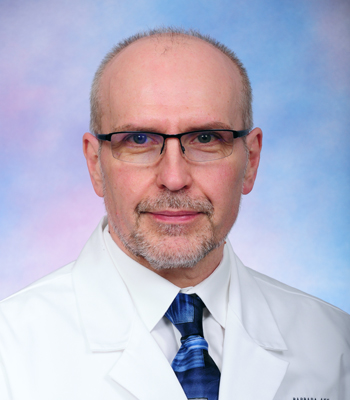Kay-Uwe Wagner, Ph.D.
Address
4100 John R, Mail Code EL01TM Detroit, MI 48201Office address
4100 John R, Mail Code EL01TM
Detroit, MI 48201
Mentoring
Rayane Dennaoui - Graduated 2/2025
Department
Oncology
Laboratory web site
Research interests
- genetic events that govern the initiation and progression of cancer
- genetically engineered mouse models for breast and pancreatic cancer
- peptide hormone and inflammatory cytokine signaling
Research description
Numerous genes have been identified that are crucial for normal development and cancer. Their role is being studied in our research group through their deregulated expression in transgenic animals and through their deletion from the mouse genome by homologous recombination. Specifically, our laboratory has the expertise to overexpress genes in a temporally and spatially controlled manner using the Tet system and to delete genes in a tissue-specific and temporally controlled fashion using the Cre/loxP recombination system. Current projects include the analysis of cytokine signaling through the JAK/STAT and PI3K/AKT pathways as well as the role of c-Myc and oncogenic Kras in the initiation and maintenance of pancreatic ductal adenocarcinoma.
PubMed - my bibliography
Education/training
B.Sc. 1990 University of Leipzig, Leipzig, Germany
M.Sc. 1991 University of Leipzig, Leipzig, Germany
Ph.D. 1995 University of Halle-Wittenberg, Germany
Postdoc 1995-2000 National Institute of Health
